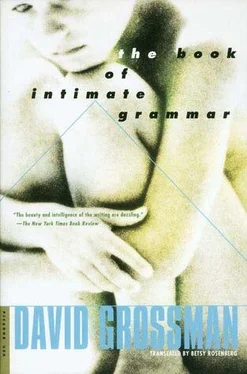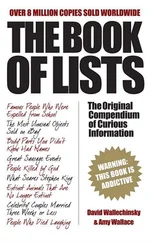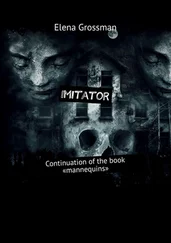Next morning, as she hung the winter quilts out the windows to air before putting them in storage, Mama caught sight of two rugged-looking movers hauling Edna’s dusty black Bechstein piano. A number of neighbors had gathered on the sidewalk to watch: Sophie and Peretz Atias, Felix and Zlateh Botenero, Avigdor Kaminer, who seemed to have perked up a bit since the death of his wife and even started dyeing his hair. When they noticed Mama looking down, they angrily turned away: they knew it was Mama’s greed that had made Edna sell her piano. But another thought had occurred to them too, that she was selling the expensive instrument because there was no room left for it in her little apartment.
It had been the only piano in the building, the only one on the block perhaps. And though Edna had played it no more than once or twice in the past few years, there were some among them who could still remember the occasion of its arrival here, and how Edna would practice a little Chopin in the afternoon sometimes. Mama had backed away when she saw them glaring at her, and now she reappeared in the window in all her majesty, shaking out the quilts with lofty indifference. But suddenly she too was seized with sadness. She stopped what she was doing and wadded up the rag in her hands as though to salute a passing coffin. She too, in those bygone days, had sometimes paused to listen, wiping her hands on a kitchen towel. Sighing. When the movers drove off, the neighbors bowed their heads a moment, and a shiver of woe passed through the building.
And in the midst of all this, Grandma appeared. For months she had lain immobile, till the elderly doctor who suggested a new treatment the year before broached the subject again to Yochi one evening as shesat beside Grandma at the hospital; the doctor had been watching Yochi take care of Grandma for quite some time. Now he showed her Grandma’s records. What a shame, he said in his broken voice, and waited for an answer as her childish blue eyes stared down at the floor. How he must suffer, thought Yochi, with his voice cracking every minute. “Your grandmother could go on living,” he whispered again, and Yochi thought, He certainly doesn’t look like someone who chops people up for diploma practice. She said she needed time to decide, and pondered the dilemma without consulting anyone. A few days later she told him she simply didn’t have the strength to make a life-or-death decision. Let him decide and she would hope for the best. And the following day the doctor wheeled Grandma to surgery and did the deed: he cut a tiny drainage canal in her brain; the fog lifted, and one week later Grandma Lilly blinked an eye, sat up, and smiled, and when they showed her how, she started to walk again.
It was truly wonderful, but terrible too. Grandma was home, but no one dared to look at her — they were ashamed of leaving her like that, like a dog, alone in the hospital, but they were also ashamed of having seen her in such a pitiful state, of having handled her body as if it were their own. Mama gasped, remembering the things she had divulged while Grandma was ill. She blamed it on Papa, on the banging at Edna’s, it had shocked the foundations of order and reason, he’d raised the dead with his boom boom boom, and she bit her fingers with an anxious glance at Aron, as the three of them grasped what Mama would never acknowledge: that the family accounts with Fate were a mess; the letters had been switched.
Grandma came home by taxi. Papa went to fetch her at the hospital, stuffed respectfully into his only suit, the fusty one from his wedding day, and he had to breathe carefully not to pop the buttons on his barrel chest. Mama served coffee and a fallen torte, and they all sat frozenly around her, afraid to open their mouths. Grandma regarded them with her seeing eye, and the crooked new expression on her face looked sharp, disdainful. Her eye roved to the new buffet, the recently painted walls. “Remember, Mamchu, remember the mildew and the stains on the ceiling,” Mama gushed, “you were still here the time we had the leak from the sink upstairs at the Boteneros’, weren’t you?” A bitter smile floated over Grandma’s lips. Mama tormented herself for having trusted Grandma even on her deathbed. Still Grandma saidnothing and they couldn’t tell whether she knew how to talk or not. The whole left side of her body was paralyzed, but her face was barely wrinkled at all, as though she’d been living in a state of suspended animation beyond the ravages of time. One lid drooped over her eye, and from the side she looked like a fortune-telling gypsy. When Papa started cracking his knuckles she turned to him with amazing speed and he froze under her gaze. Mutely she examined the armature of his body, the new might of its bulwarks, and right away she knew everything, as though someone had whispered the story in her ear. There was no doubt that she knew. Slowly she turned to Mama and transfixed her with a long, apocalyptic stare, which only Mama understood.
Then she turned to Yochi. She stripped her naked with her eye and embossed a design of wasted youth. Yochi squirmed. Mama smiled encouragingly and whispered, “This is Yochi, Mamchu, you remember Yochi. She’ll be graduating from high school soon, she’ll get a deferment from the army and go to the university! Maybe she’ll be a doctor someday, a doctor!” Yochi didn’t even bother to protest. Grandma’s eye twinkled. Maybe she remembered something, a special moment out of her many hours in Yochi’s care. She smiled at her. Yochi wept softly, not bothering to wipe her eyes. Mama held out a handkerchief, but Yochi ignored her outstretched hand. The tears welled in her eyes and flowed down her cheeks, onto the chair and the carpet, and Mama watched in deep amazement, thrusting the handkerchief in Yochi’s face. “Enough already, nu, you’ll cause a flood, wipe your tears now, aren’t we happy to have Grandma home,” and Aron peeped at the tiny drops: what if Yochi went on crying forever, till her tears became a trickle, then a stream, then a mighty waterway coursing over the floor in search of Mama …
Then Grandma turned to Aron. Astonishment spread over her face, and her mouth skewed up inquiringly. Mama, Papa, and Yochi hung their heads. She seemed to be trying to say his name. They all looked up, surprised, hopeful. God Almighty. Aron’s hands were sweating. He remembered the golden thread she had given him once. Maybe now she’ll give me the real present, he thought. Grandma Lilly wagged her head, shaking off forgetfulness, fatigue. Her face turned sallow with effort and frustration. Aron sank back in his chair.
That day Papa didn’t go to work at Edna Bloom’s. Maybe Mama’s accusation worked and now he was frightened of himself. After theyput Grandma to bed in her alcove, Papa tiptoed around the house, and Aron tried to stay out of his way. With Papa in the house, even the door frames and the furniture, everything looked tiny around him, and Aron reckoned the days that had passed and knew only a miracle would save them now; something had to happen, one way or another, it had to, he was about to explode: the food he swallowed in tiny bitefuls clogged up his stomach, and how long would his heart be able to pump with all that mush inside him, it did seem to be beating more sluggishly of late, he had actually noticed that, maybe food particles were filtering into his bloodstream, congesting the chambers, the auricles and the ventricles; Aron could picture it clearly: the atrium, a muscular pouch, filling up with liquid food, and his heart struggling to pump it, barely able to contract, it was so glutted with goop; and all night long he tosses and turns, burping those little burps that burn and smell like rotten eggs, and next his throat will fill up and push out his Adam’s apple, and then the stuff will ooze into his face, and his cheeks will balloon, he’ll look like a freak, and from there it will pass into his brain, and then he’ll blow up, then they’ll really have a mess on their hands.
Читать дальше












